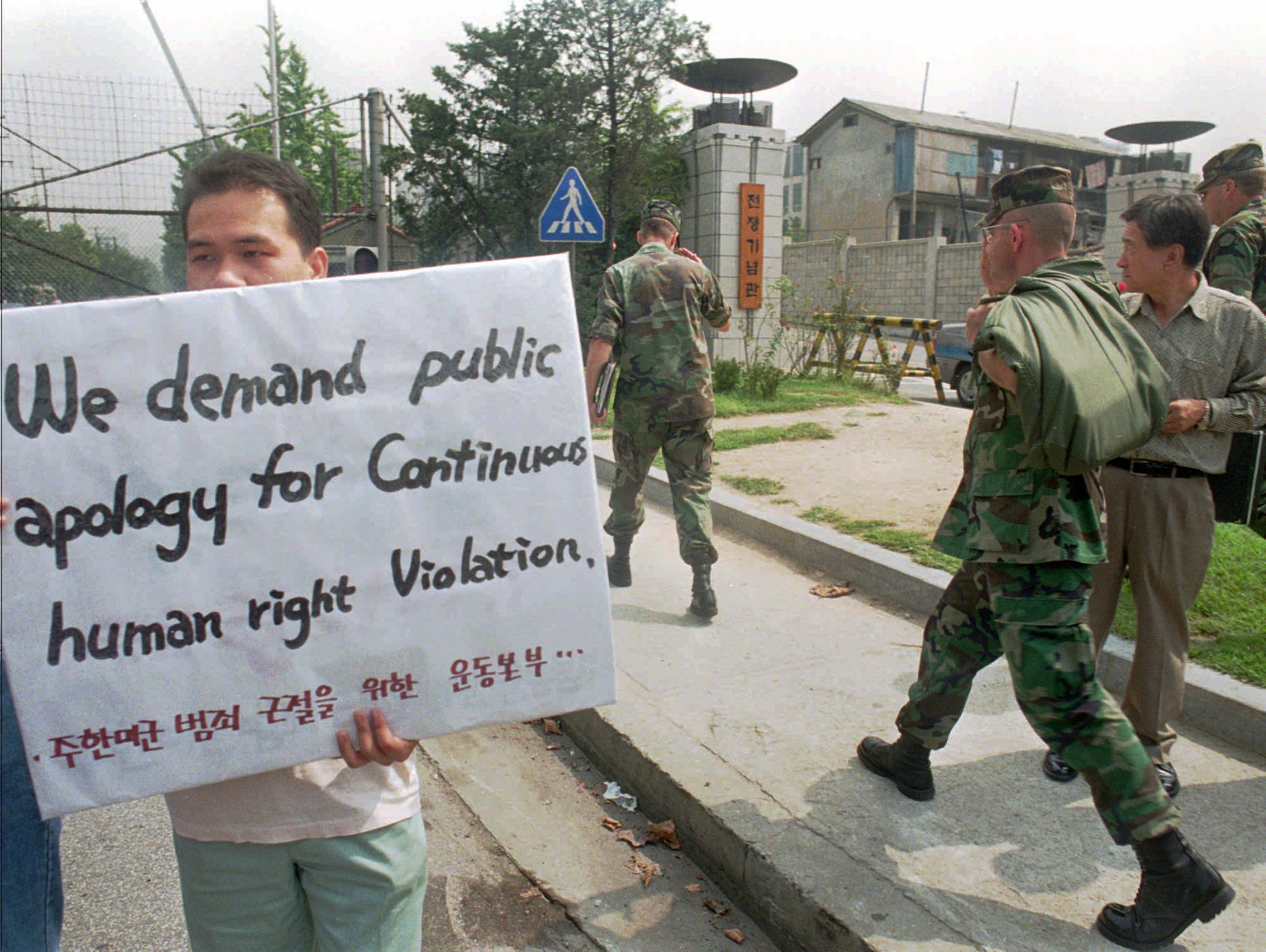On Jan. 20, the Seoul Central District Court partially affirmed the claims of Korean women who had been sex workers in "camp towns" adjacent to U.S. military bases in the 1960s and '70s. The New York Times called it a "landmark ruling" because it was the first official acknowledgement that the legal rights of the women who supplied sexual services to U.S. base personnel were violated.
The court pointedly referred to the plaintiffs as "comfort women," drawing a parallel with Japan's more notorious system of wartime sexual servitude. In their lawsuit, the plaintiffs argued it was hypocritical of the state to provide comfort women for U.S. soldiers while excoriating Japan for its corresponding system.
The court ordered the state to pay 5 million won (about ¥450,000) in damages each to 57 of the 122 plaintiffs, ruling that the government had no legal basis for forcibly detaining them to prevent the spread of sexually transmitted diseases in the 1960s and 1970s prior to enacting a law allowing this in 1977. At that time there were approximately 20,000 comfort women serving 60,000 soldiers.



